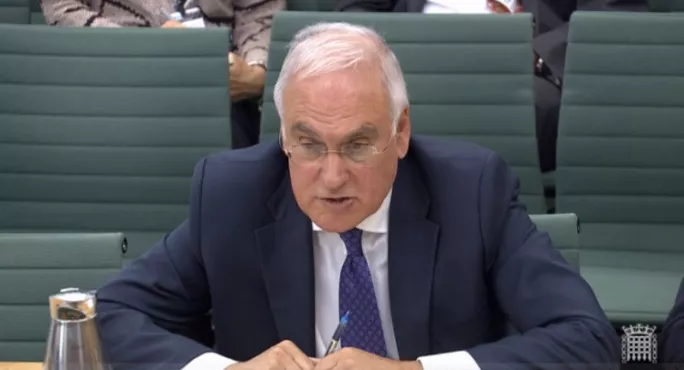When I was a student, none of my housemates or I could cook. We were terrible in fact, mostly surviving on toast and baked beans.
I realised this might be a problem, so I wrote to the secretary of state for health and told him that while of course - of course - I supported his approach on anti-obesity, the problem was that no one in England could cook, and that therefore a strategy that focussed on healthy eating was flawed.
Sir Michael Wilshaw’s letter on the weaknesses of underperforming multi-academy trusts (MATs) commits the same category error. Whilst he acknowledges in his opening paragraphs that his conclusions are all drawn from MATs that gave Ofsted the most concern, he then goes on to say “I think it is important…to apprise you of the findings from these assessments to help inform the future academies programme” (my emphasis).
Without doubt, the findings of some of the inspections are stark. Poor pupil progress and attainment, weak leadership, confused governance: all of these are important findings and the MATs in question absolutely should be working on them. But what, exactly, do these findings of poor performance amongst poorly performing trusts tell us about the performance of MATs more broadly, or indeed the possible future performance of an all academised system? At best, it tells us that some will do badly - something that has never been in dispute. But does it tell us that they are more likely than an alternative form of governance to do badly? No. Does it tell us why some do badly? Not really. Does it, in truth, actually do that much to ‘help inform the future academies programme’? I don’t think it does.
The second issue with the letter is in some of its conclusions. Sir Michael sets out his view that the MATs his teams have looked at are paying their chief executives too much money, that they are saving too much cash in the bank, and that their geographical spread is too wide. Let’s set to one side the fact that, as registered charities, it is entirely up to the boards of the trusts to decide on their own remuneration policies and use of reserves. My bigger question is that is isn’t clear where in Ofsted remit this provision of advice comes in. It is perfectly right and proper for them to identify weaknesses in schools and in MATs in the areas of the Ofsted framework. But there’s a fine line between reporting findings, and opining on policy. Whether on the right level of chief executive salaries here, or on the structures needed for developing new school leaders in his speech to ASCL last week, or on the correct institutional setting for 16-18 year olds doing vocational education as in his remarks to the Education Select Committee, the tendency for HMCI to dip his toes into issues which I believe are more properly the remit either of individual school leaders or the DfE, is unfortunate.
Let me be absolutely clear. I do think it is a problem that some of the largest academy chains in the country are performing poorly for the students in them. I think that DfE should take clear and unambiguous action against underperforming academies and academy trusts just as they do for underperforming maintained schools and local authorities. Indeed, as someone who is in favour of an all-academised system and who wishes to see many more MATs, I feel even more acutely aware of the need to hold all academies to the highest of standards, precisely so this type of poor performance by some is not used as a stick with which to beat the entire programme. But this letter shows almost no acknowledgement of the incredible performance of some individual academies and MATs up and down the country over the past few years - including, to take just one recent example, the Hethersett Academy, which has been taken from special measures to outstanding in all areas by the Inspiration Trust in just over two years, or the ongoing high standards delivered in some of the toughest areas of the country by schools such as Bethnal Green Academy in East London or Dixons Trinity Academy in Bradford.
Just as those who rush to point out that poor performance by certain local authorities does not in itself make a case for there being no local authority role, so too should it be understood by all that poor performance from a subset of MATs tells us very little about the wisdom or otherwise of creating more of them.
Sir Michael Wilshaw once argued that the debate over school structures was “sterile”. It’s a shame, then, that his letter today seems likely to do little more than act as a big bucket of fuel to reignite the flames of this debate.
Jonathan Simons is head of education at the Policy Exchange thinktank and author of TES’ Whispers from Westminster column
Want to keep up with the latest education news and opinion? Follow TES on Twitter and like TES on Facebook




